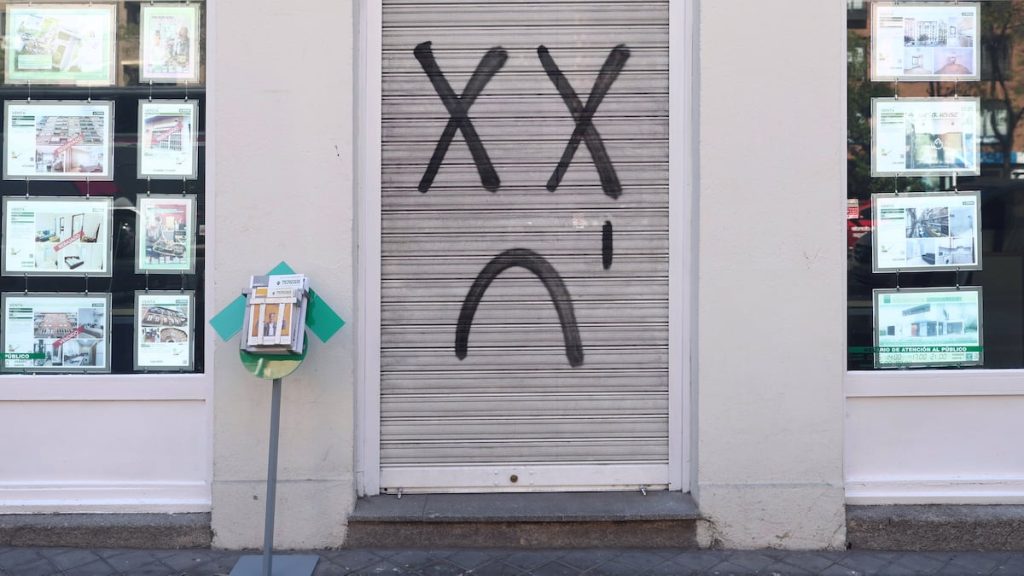The ideological war over housing in Spain is heating up, with two opposing blocks of organizations battling it out. On one side are defenders of the real estate business, decrying “interventionism” and extolling “legal security,” while highlighting threats to property such as taxes and squatting. This block has deep roots and significant influence in shaping public opinion and policy. Key organizations in this block include the Association of Homeowners for Rent (Asval), the Association of Real Estate Consultants (ACI), and the Institute of Economic Studies (IEE), all led by former politicians with ties to the real estate industry. These organizations use various tools to advocate for their interests, including reports, events, expert opinions, and media messages.
The real estate block is also connected to academia, with companies like Tecnocasa funding university chairs that promote their views on the housing market. The Association of Promoters and Builders (APCE) and the Confederation of Construction share similar positions against government policies and advocate for more construction through a public-private partnership. In addition to industry groups, there are organizations like socimis and insurers that contribute to the debate with arguments in favor of market self-regulation and against government intervention. Idealista, a prominent real estate portal, is also a key player in shaping the narrative around housing policies.
On the other side of the debate are organizations advocating for the right to housing, such as the Platform for People Affected by Mortgages (PAH) and tenant unions. These groups challenge the dominant discourse that favors property owners and rentier households, emphasizing the need to address housing inequality and speculation. New voices from these organizations, including researchers and activists, are gaining visibility and credibility in the housing debate as they push back against the real estate lobby and its allies. The discourse around housing rights is evolving and attracting support from a broader segment of the population.
While the real estate industry remains dominant, there is a growing resistance to its narrative, particularly among younger generations and those affected by housing insecurity. The concept of “rentism,” which highlights the exploitation of housing for profit at the expense of tenants, is gaining traction as a way to challenge the current economic system that prioritizes financial gains over social needs. Organizations advocating for housing rights see themselves as part of a broader movement for social justice and democratic renewal, offering an alternative vision to the status quo.
As the housing debate continues to intensify, with clashes between opposing views on market regulation, property rights, and affordability, both sides are adapting their strategies to mobilize support and shape public opinion. While the real estate industry emphasizes market self-regulation and legal security to protect property values, housing rights advocates focus on addressing inequality and ensuring access to affordable housing for all. The outcome of this ideological battle will have far-reaching implications for housing policy and the distribution of wealth in Spain.


